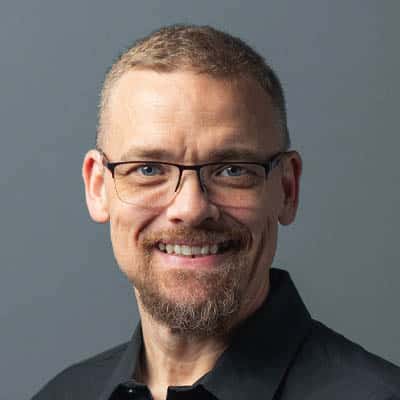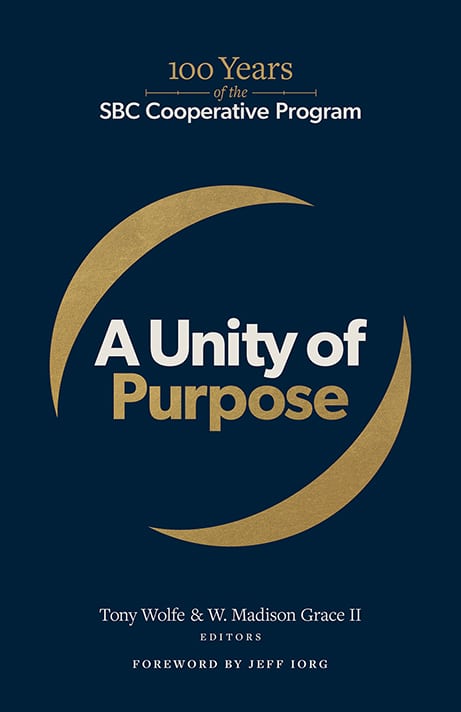When SBTC pastors and church leaders visited Europe in May, they found a continent rich in Christian history and shockingly far from Christ
When many Christians imagine unreached people groups, they envision dense jungles and dusty trails. They see villages full of sun-baked huts with thatched roofs housing exotic natives in some of the most remote, difficult-to-reach places on the planet.
In Europe, those unreached people aren’t hidden and they aren’t hard to reach. There’s 820 million of them, and almost none of them know Jesus.
Only 1.1% of Europe’s residents are evangelical. There is no single population segment that is 2% reached with the gospel. By the International Mission Board’s standards, that makes all of Europe an unreached people group. It’s the most lost continent on the planet.
In early May, the Southern Baptists of Texas Convention led 39 pastors and church leaders on a vision trip as it ramps up its Reach Europe initiative. The effort aims to reverse the trend of staggering lostness by creating opportunities for SBTC churches to develop missional partnerships with European churches and ministries. The vision team was divided into groups that were then dispatched to one of seven cities where the SBTC is considering partnerships: Athens, Greece; Bucharest, Romania; Budapest, Hungary; Copenhagen, Denmark; Leeds, England; Nantes, France; and Ljubljana, Slovenia.
The following chronicles part of what the SBTC teams saw, what they learned, and what’s next.


‘Inoculated to the gospel’
Copenhagen has a rich Christian heritage. Statues and stone carvings dot the city landscape, depicting notable figures and moments in the country’s faith history. The Marble Church, an iconic landmark with its green-patinaed copper dome, greets visitors and passers-by with a bold proclamation delivered in gold letters across its facade: “The Word of the Lord will be eternal.” Denmark’s flag, the Dannebrog—a red banner adorned with an off-center white cross—is a tribute to three values the country’s founders held dear: bravery, strength, and Christianity.
Spiritually speaking, all that pomp is not indicative of the modern circumstance: an estimated 95% of Denmark’s 6 million residents—and likely more—do not have a personal relationship with Jesus Christ. Cultural Christianity reigns here, sustained by a society soaked in secularism, relativism, and the country’s faith-based history. Because of that history, many Danes conflate their national identity with religion. Put another way, many believe that to be Danish is to be inherently Christian—even without
having a personal relationship with Jesus Christ. Statistics reveal about 75% of Danes belong to the state-affiliated Church of Denmark, which performs infant baptisms. Sixty-eight percent of those people, however, say they are atheists. Fewer than one in 40 attend church.
Prominent Danish voices once heralded the one true gospel of Jesus in this country. These days, they sing a different refrain: “This is a society that is doing well without God,” according to Christian Roth, who, along with his wife, Stephanie, serves as the IMB’s lone missionary unit not only in Denmark, but also in Sweden—representing a total of about 17 million people.
“This is a very lost place,” said Roth, who pastors New Song Church in Copenhagen. “It’s a part of Europe surrounded by Christianity but inoculated to the gospel.”

“This is a very lost place. It’s a part of Europe surrounded by Christianity but inoculated to the gospel.”
—Christian Roth Tweet
The degree of lostness in Denmark is on display in one of Copenhagen’s busiest centers. As SBTC pastors toured a section of the capital city on a drizzly Saturday, they walked through an area buzzing with locals, tourists, and vendors. An already noisy plaza stopped to take notice when a pack of demonstrators began parading down the street, blaring reggae music and holding up placards demanding the government legalize marijuana. Farther down the street, pride flags whipped in the breeze above several local businesses to show support for the LGBTQ community.
Cult activity is openly practiced and promoted. On this day, Scientologists had scattered out from their palatial four-story headquarters—which declares itself a “kirken,” or church—located nearby. Some were offering free literature in front of Copenhagen’s city hall. A few blocks away, a mustard yellow pop-up tent served as a hub where another group of Scientologists were offering to teach people how to manipulate their bodies to manifest positive energy. A banner above the tent offered a self-empowering message: “You CAN do something about it.”
New Song Church is preaching a much different message: Only Jesus can do something about it. The next day during regular Sunday morning services, the SBTC contingent heard Roth—playing guitar—join two other members in leading worship. “You have no rival. You have no equal,” they sang, “now and forever, God, you reign.” Roth later preached on 1 Corinthians 12:12-31 and talked about God’s plan for His church.
“The church is God’s only plan for bringing the world to salvation,” he said. “Jesus came to seek and save individuals who are lost, but the way He did it was by founding the church.”
The harvest in Denmark is indeed plentiful, but the workers are few—very few. Despite straining to plow very hard ground during their seven years in country, the Roths remain hopeful. They are praying for more long-term missionaries to join them on the mission field—a process they know would likely take years even if new trainees join the sending pipeline tomorrow. In the meantime, they’re praying for short-term partners from SBTC churches to catch the vision of what God can do through relational outreaches, marriage conferences and retreats, and evangelistic events such as vacation Bible school.
Roth noted many in Denmark’s younger generations are starting to question societal norms that have encouraged people to look anywhere but to God for answers to life’s toughest questions. While that’s a promising development, it comes with a sense of urgency in a city where Scientologists, Muslims, and Jehovah’s Witnesses are gaining a foothold.
“If it’s not the church and the gospel answering those questions,” he said, “someone else here will.”
‘If any state can do it, I think we can’
The same is true in Hungary, where Lamar Schubert, the IMB’s cluster leader for Eastern Europe, said there’s been an increased receptivity to the gospel over the past few years. Some of that can be attributed to the pandemic, he said, and some to the war in Ukraine that has destabilized the region.
As doubts and fears have risen in the public’s consciousness, missionaries who have transplanted their entire lives here are building relationships and telling people about the strength and hope found in Jesus.
Hungary is a post-communist country of 11 million people. The population, in one sense, is split between urban dwellers—5.5 million of which live in the capital city of Budapest—and the Roma, the country’s ethnic majority that has fanned out and settled in rural areas. The Roma people are descendants of the nomadic tribes of Romania tied together by the Hungarian language. Though they are harder to track for census purposes, it’s estimated there are 1.5 million Roma in Hungary. Most live in extreme poverty, with many repurposing garbage and discarded construction materials to build makeshift homes.
The challenges here are many. For older Hungarians, a gospel pointing to an absolute authority—Jesus—is anything but good news to those whose trust was broken by the lie of communism. The younger generations, like many across the world, are drawn to philosophy or disconnected from religion altogether. There’s also a heavy cultural Christianity fueled by the Catholic church, which baptizes babies, leaving many to believe they’ve done all they need to do to be right with God.



“This guy, these people, are desperate for help. Desperate. [For a pastor here] to know there’s a seasoned pastor in Texas who cares about him and who is coming here ... that’s just discipleship, man.”
—Trey Shaw Tweet
When local believers attempt to tell their fellow countrymen Jesus is the only way to being righteous in God’s sight, Schubert said, “They’re told it’s intolerant, that it’s insensitive, that it’s communist practice. That anybody who’s convinced that their way is the only way is narrow-minded, closed-minded, a simpleton, or worse, dangerous. That’s what believers here are up against.”
Though the strategic cities are incredibly diverse and unique, the opportunities that exist within them take on a familiar shape. As the vision trip swept east across Europe, one word was continually spoken by the missionaries and pastors in each location: relationships. That word was spoken in the context of evangelism, but also in the need many local pastors and believers have in countries where Christians are the vast minority and isolated.
Trey Shaw, the IMB’s East Europe cluster trainer, recently took a mission team from Oklahoma to meet with rural pastors in three European countries. The team visited a local pastor who told the story of reaching a family after working for years to spread the gospel in his area. He was excited to have reached multiple people in an environment where few come to Christ, but his joy turned to grief when the family later turned to a false gospel and led half the congregation away with them.
“That must have been awful,” Shaw said to the pastor.
“Yeah,” the pastor said. “Then we went back down to five people [in our church].”
“He’d been doing that—street evangelism, you name it—for 10 years,” Shaw said, choking back tears. “This is where you are. This guy, these people, are desperate for help. Desperate. [For a pastor here] to know there’s a seasoned pastor in Texas who cares about him and who is coming here … that’s just discipleship, man. That’s where we will see the needle move in Europe.
“I’m a Texan, and I see the sleeping giant,” Shaw added, “and I see this dark, dark continent, and I think, ‘Man, we can do something.’ If any state can do it, I think we can. God’s blessed us beyond anything we deserve, that’s for sure.”
1 in 20
SBTC Executive Director Nathan Lorick stood on Mars Hill and, as he has done before, marveled at the historic significance of the rocks under his feet. On this same hill, Paul proclaimed the gospel of Jesus Christ.
“Acts 17,” Lorick said, standing on the smooth marble rock outcrop overlooking the city of Athens, Greece. “This is where it happened.”
Some 2,000 years ago, a grieved Paul looked down on the city after seeing rampant idol worship. Among those many idols, he even saw a monument to an unnamed God.
“Therefore, what you worship in ignorance, this I proclaim to you,” Paul said in Acts 17:24-25. “The God who made the world and everything in it—He is Lord of heaven and earth—does not live in shrines made by hands. Neither is He served by human hands, as though He needed anything, since He Himself gives everyone life and breath and all things.”
As vision tour participants visited church planters and surveyed Athens two millennia later, they saw one of the world’s most famous and historic cities modernized by time but possibly more spiritually lost than ever. Harley Walker, who serves the IMB in Athens, noted there are 5.5 million in the city. About 3 million of those live in the shadow of Mars Hill in houses or in hundreds upon hundreds of apartment buildings.
“You’d have to visit 20 of those apartment buildings before you’d find one saved person,” Walker said. “The soil is very, very, very hard here.”

“You’d have to visit 20 of those apartment buildings before you’d find one saved person. The soil is very, very, very hard here.”
—Harley Walker Tweet
One of the reasons that soil is so hard, Walker said, is because of the influence of the Greek Orthodox church, which also performs infant baptism—meaning most Greeks believe they are right with God by birth. To disassociate from the church and profess a personal faith in Jesus would be to risk being disowned from one’s family and becoming a social outcast. That reality exists in Romania, as well, where another SBTC team was told that a man who broke ranks with the Eastern Orthodox church to follow Jesus was nearly killed by a family member.
So in Athens, evangelism is most effective when done through the context of personal relationships,
Walker said. That happens through building genuine friendships where the truth of Jesus can not only be proclaimed, but modeled.
The IMB operates a community center here where Walker invites people of all ages to come and talk, play games, and get to know one other with the ultimate intent of sharing the gospel. One way he envisions a partnership with SBTC churches is through hosting groups to lead workshops offering training in skills for which its members have expertise, such as first aid, parenting classes, budgeting classes—whatever.
“We’re only limited by our imagination,” he said. “We need all the help we can get.”


‘The is just the first wave’
The SBTC teams regrouped just outside London on the final day of the trip to pray, compare notes, and consider what future partnerships with European churches might look like. Each team gave a brief presentation, sharing what they experienced and what opportunities exist for SBTC churches considering a Reach Europe partnership.
Charles Lee, lead pastor of Acts Fellowship Church in Austin, was part of the Romania group. He said he was burdened by the level of lostness in Bucharest and, at the same time, inspired by the pastors working to reach them. Many of those pastors are bivocational and doing manual labor to provide for their families.
“There’s so much work that needs to be done to reach the lost people,” Lee said. “There’s so many people there that don’t have a personal relationship with Jesus Christ, and it’s just heartbreaking to see.”
Though Acts Fellowship is involved with missions in Puerto Rico, New Mexico, and Las Vegas, Lee said the church has been praying about connecting with an international partner, as well. His next step will be to report back to his congregation about what he saw in Europe and continue to lead the church to pray about the opportunity.
“You can tell there’s a need just to let these missionaries know that they’re not alone.”
—Clint Williams Tweet
“There’s so many people there that don’t have a personal relationship with Jesus Christ, and it’s just heartbreaking to see.”
—Charles Lee Tweet
“[We will be] trying to discern God’s will,” he said. “We are just trying to see where God would have us to go.”
Clint Williams, lead pastor of Holly Springs Baptist Church in Garrison, went to Budapest. He said he has already had conversations with his church about going back possibly as soon as this fall. Like Lee, Williams said he sees opportunity not only in helping local churches spread the gospel, but in encouraging local pastors.
“You can tell there’s a need just to let these missionaries know that they’re not alone,” Williams said. “The least we can do is come back and let them know that these pastors in Texas have their back.”
Lorick, SBTC’s executive director, noted that the IMB personnel who serve here said this was the first time they’d seen a state convention come in such force on a single trip of this kind: 39 people, including 17 pastors and eight missions leaders, representing 21 churches and three associations. He urged the churches to continue giving through the Cooperative Program, which funds the work that is happening overseas, and to spread the word about Reach Europe in their churches and through their networks.
“Here’s what I’m convinced of,” he said. “Your eyes were opened to a need, and you are open to the reality that you are a part of the solution to meet that need. God’s given us an opportunity to make an absolute eternal impact in Europe. … This is just the first wave.”







